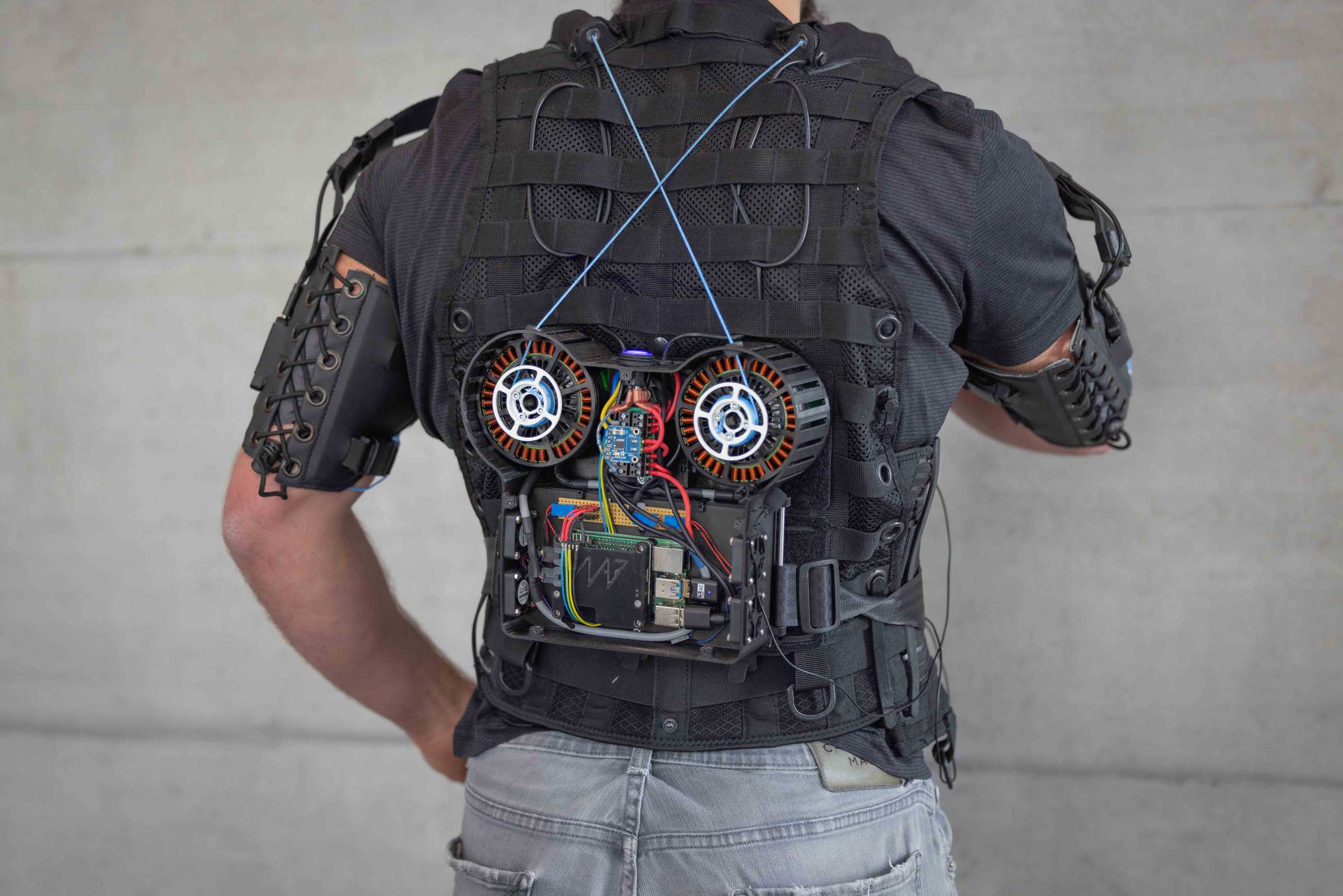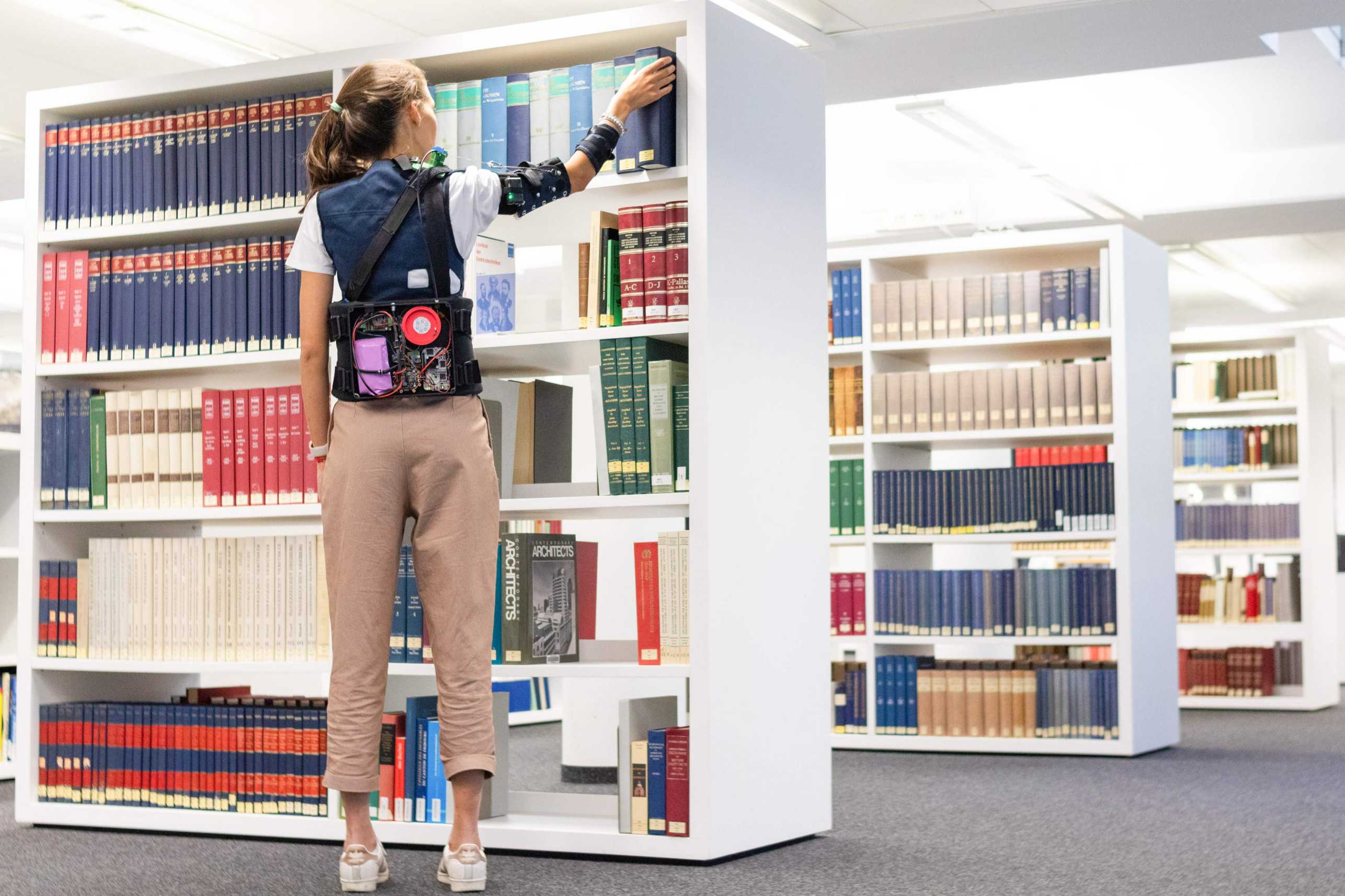The Myoshirt - Daily life assistance for the upper limb
Impairments of the upper limb are caused by various acquired or congenital disorders, but also common ageing. These impairments can limit upper limb function, such that activities of daily living become challenging and quality of life suffers. The Myoshirt - a modular soft wearable exosuit - assists the upper limb in daily life. A tendon anchored to the upper arm is tensioned by a Tendon Driver Unit (TDU) worn on the lower back. In this way the upper arm is partially supported against gravity, and the metabolic cost of arm elevation is reduced, allowing for users with muscular weakness to benefit from an enhanced range of motion and increased endurance when elevating the arm.
Contact Person
Adrian EsserCooking, cleaning and other activities of daily living require various movements of the arms. When arm function is limited, these activities become challenging and quality of life is compromised. The underlying impairments can be caused by various disorders. These disorders include genetic diseases such as muscular dystrophies, traumatic incidents such as strokes or nerve palsies, but also common ageing.
In the recent past, the emerging technology of textile-based assistive devices has been successfully applied to assist human walking, for example in the form of the Myosuit. Textile-based assistive devices have many advantages: They are lightweight and can be combined with normal clothing. If powered actuation is required, the bulk weight can be mounted energy-efficiently close to the body’s core. And using advanced control strategies, they can assist the wearer intuitively, acting like an external layer of muscles.
In this research project, we aim to create tools that effectively assist the upper limb in daily life. We therefore developed the Myoshirt, a modular textile-based wearable robot that assists shoulder mobility by supporting the upper arm against gravity. With only one motor per arm, the Myoshirt can support multiarticular movements such as reaching. Forces are generated in a Tendon Driver Unit (TDU) and transferred to the upper arm with a tendon routed over the shoulder.
The forces from these tendons produce assistive torques that support shoulder elevation and external rotation. Using only a simple motion sensor on the arm, the user's movements are detected and followed without any additional user inputs. This makes the Myoshirt an intuitive tool that actively supports people with upper limb impairments during activities of daily living.
Funding
Swiss National Science Foundation through the National Center of Competence in Robotics

